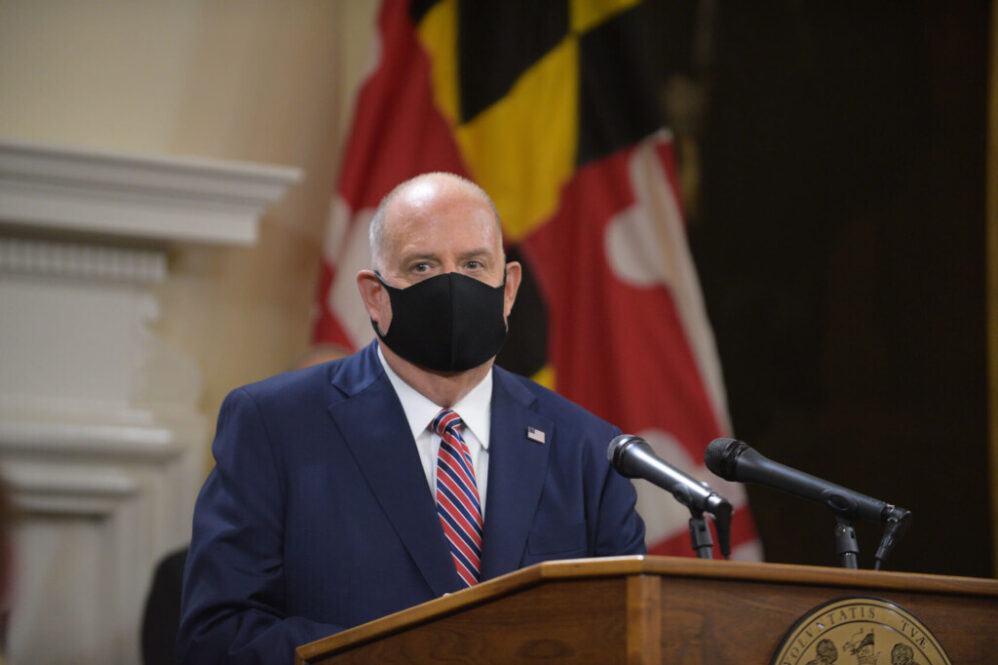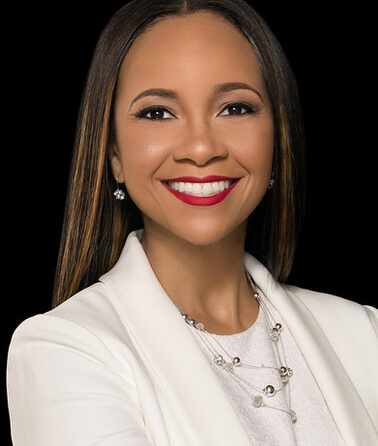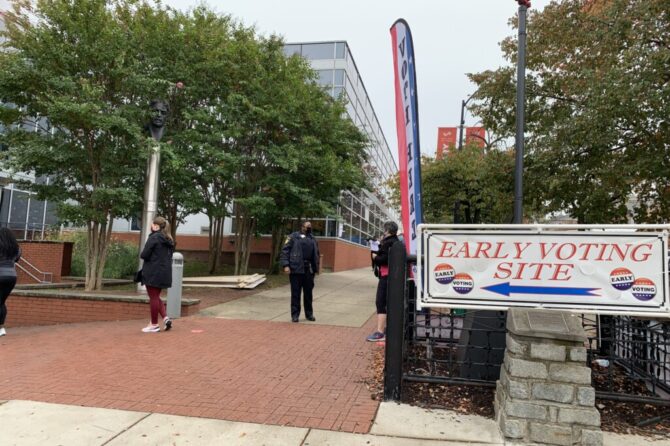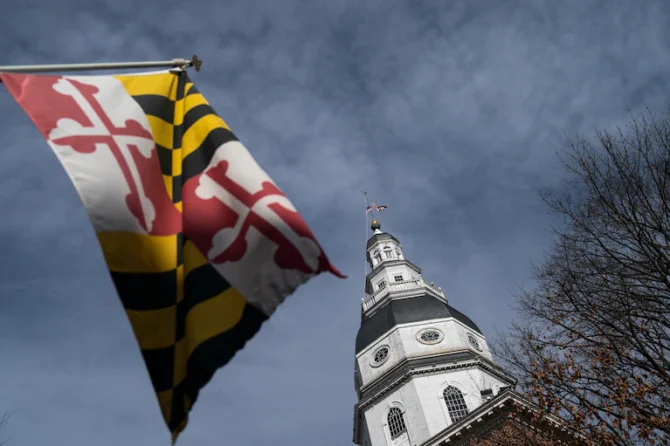MARYLAND MATTERS: On Jan. 18, Gov.-elect Wes Moore (D) will take the oath of office, bringing Larry Hogan’s two terms as governor to a close. Moore will make history that day, becoming the first Black person to become governor of Maryland.
Hogan made history of his own over the last eight years, becoming the first Republican since the 1950s to win re-election. He leaves office with high job-approval numbers, a marked contrast with several of his two-term predecessors.
Earlier this week, Maryland Matters Senior Reporter Bruce DePuyt spoke with Hogan in the governor’s State House office. This is Part I of their conversation. It has been lightly edited for length and clarity.
Maryland Matters: You’re coming to the end of an eight-year ride that was pretty wild, and you do so with your popularity numbers intact. That wasn’t true of Maryland’s last few two-term governors. What thoughts do you have as you prepare to depart?
Gov. Hogan: I feel satisfied. I not only gave the job everything I had, but that we accomplished nearly everything that I said I was going to do, and we’re leaving the state in in much better shape than where we found it. I’m very at peace with it, actually. We had a great team of people working really hard for eight years.
Everybody always says ‘popularity,’ but it’s a job approval number. After eight years of being a Republican governor in the bluest state in America, having three quarters of the people think you did a good job makes me feel a sense of accomplishment and makes me kind of proud of the effort that our whole team put in.
MM: You faced three enormous crises — the uprising in Baltimore, your cancer diagnosis and a once-a-century pandemic. So on top of the thousands of decisions that any governor faces, you also had these extraordinary additional challenges.
Gov. Hogan: We had three pretty big crises hit us completely out of the blue. We were 89 days in, I think, when the riots broke out, the worst violence in 47 years in our largest city. We had to take immediate action and make important decisions and that was a big deal with a brand new governor and a brand new government. I had never been a commander in chief before then. I had to call in 4,000 members of National Guard. I had a new superintendent of the State Police. We had to send in the state police to back up the city police.
But also I acted as a consoler-in-chief. I was trying to let the people of Baltimore know that they were going to be safe and that it was going to be OK. I think we handled that very well.
MM: Two months later you were diagnosed with late stage 3 non-Hodgkin’s lymphoma.
Gov. Hogan: Yes. Sixty days later, I had this life-threatening cancer diagnosis. Came from out of the blue. I was barely governor for five months and people were like, Hey, is this guy gonna make it? I governed from the hospital during 24-hour-a-day chemotherapy. They were pouring five different kinds of chemo into me, ravaging my body and but I still kept working. That was an incredible personal challenge.
MM: And in March of 2020, this virus that we knew was a problem in Asia hit Maryland.
Gov. Hogan: The earlier challenges were nothing compared to the worst global pandemic in more than 100 years. I wasn’t just worried about keeping the people in Baltimore safe or worried about my own health. I was worried about 6 million people and their lives and livelihoods and dealing with a crisis no one had ever dealt with before.
We had nothing. We had to build these entire infrastructures from scratch. A natural disaster comes in and it lasts a week and it’s in one location or a couple locations. This was every day. It just kept coming and coming for two and a half years. And we were working around the clock and the stress was unbelievable. It was an enormous challenge. But I think you know, we had one of the best health and economic recoveries and I think we got the highest marks for the handling of the virus of any state.
MM: What advice would you give future government executives, people preparing to become mayors or governors?
Gov. Hogan: People say to me all the time that you seem like a regular guy and you seem to just say exactly what you think. I think I’m more blunt than the average person and some people would think that’s not good in politics, but actually people — because they’re so turned off to politicians — that they like someone that seems just like them and talks to them like they want to be talked to, a straight-shooter.
I think you have to communicate effectively and clearly, as we did during COVID, as we did during the riots. We’re like, here’s what we’re doing. Here’s why we’re making these decisions. And here’s why it’s important. And people said, wow, we’re not getting that from anywhere else.
And while I do kind of sometimes stand up and fight for the things I believe in, I’ve never made it personal or called people names or tried to demonize them because they were a different party or because we have their full philosophy. I have been willing to work across the aisle and that’s overwhelmingly popular.
MM: Your father [former Rep. Larry Hogan Sr. (R)] was the first prominent Republican to turn on President Nixon during Watergate. And that was a huge moment. He was praised for that, though it may have hurt him politically. What did you take away from that experience?
Gov. Hogan: My father did a lot of things, but that’s the one moment that he’s most remembered for, because he had the courage to do something really hard that he knew was not good for him personally. It wasn’t good for politics. But he thought it was the right thing to do for the country.
So I learned about public service. I learned about standing up and doing the right thing, putting country above party or self. And I think it just made me realize that — although it hurt him in the short term and people were really angry for a long time — it’s the thing people are most proud of. It’s the moment in history that he’s admired for. It’s like, do the right thing and people will remember.
MM: Are you worried that the things that made you popular in Maryland are not the things that GOP base voters find appealing? At the moment the base seems drawn to Gov. DeSantis, a smash-mouth guy in the Trump mold.
Gov. Hogan: Well, I’m not worried about it because that just doesn’t enter into my thinking. But the thing people forget sometimes is that I had to win nearly every Republican and nearly every independent and 30% of the Democrats to get elected governor. And I had just as much support among Republican primary base voters and self-described conservatives as Donald Trump. I just added to that by convincing Independents and Democrats to consider voting for me.
And I’ve been saying for years that you have to have a bigger tent. You have to have a message that appeals to a broader group of people. If you’re just preaching to the base, you don’t get to govern.
The past six years have been the worst six years for the Republican Party and doubling down on failure is not the way. You have to do what we’ve done. I currently have a 74% approval rating among Republicans, and a 70% among Democrats and 77% among independents. That doesn’t mean Republicans don’t like me. That’s higher than any other Republican that I can think of.
In the Morning Consult polls, I’m either number one or number two highest job approval. Ron DeSantis is number 31 [laughs]. Every time the media says two years out this is the next guy, it’s never the next guy.
I think more people are moving in our direction. I was the only one speaking out against Donald Trump and now nearly all the former Trump cabinet secretaries and a lot of senators and my fellow governors who kind of agreed but wouldn’t speak out are now speaking up.
MM: You had a lengthy conversation with Gov.-elect Wes Moore not long ago. What do you think of Wes Moore?
Gov. Hogan: I really like him. He seems like a genuinely nice, likable guy who seems to really want to make a difference and seems to be in it for the right reasons. We hit it off really well. I spent about an hour and 20 minutes with him, one on one. Our teams have been working together nearly every day for months. His family is very nice. And I told him I was gonna do anything I could to help them in the transition.
MM: Do you worry that things will regress?
Gov. Hogan: I told him I was worried about that. And I told him that, if I were him, I would be careful about that. The legislature now has more budgetary powers than they used to and while he had some things he wanted to accomplish, they might have some other ideas about getting back to the days of spending and taxes. And I said, you know that that’s not where the voters are because three quarters of them like the direction we’re heading now. And they like the balance. They’re not going to like no balance and going back to 2014. He said “do you have any advice for me?” and I said don’t go back to the days of O’Malley/Brown.
Coming soon: In Part II of our interview with Gov. Hogan, he discusses his relationships with Lt. Gov. Boyd Rutherford (R) and the late state Senate President Mike Miller (D). He also talks about his biggest regrets, his stalled toll lanes initiative, the 2024 race for president and the events of Jan. 6.










